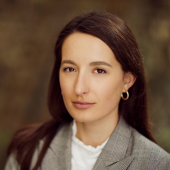As part of our new country case study series, project member Lisa-Maria Neudert investigated computational propaganda in Germany.
Political actors are using algorithms in efforts to sway public opinion. In some circumstances, the ways coded automation interacts with or affects human users are unforeseeable. In others, individuals and organizations build software that purposefully targets voters, activists, the media and political opponents. Computational propaganda is the assemblage of social media, autonomous agents and algorithms tasked with the manipulation of opinion. Automated scripts equipped with big data work over social media to advance ideological viewpoints. Politicized social bots are one version of potentially malicious programs. State and non-state political actors have used computational propaganda to manipulate conversations, demobilize opposition and generate false support on Twitter, Facebook and Instagram. Understanding how technologies like these are used to spread propaganda and misinformation, engage with citizens and influence political outcomes is a pressing problem. We have worked with computer scientists to detect bots and misinformation in “real time” during political events in Germany. Furthermore, we have interviewed German bot developers, journalists, data scientists, policy makers, academics, cyberwarfare specialists and victims of automated political attacks in order to investigate potential impacts of computational propaganda, especially in relation to the Bundestagswahlen 2017 and ongoing right-wing currents in the public discourse. Part 1 discusses social bot activity in Germany and empirically analyses their employment during elections. Part 2 evaluates misinformation and junk news. Part 3 examines the political, commercial and social responses to computational propaganda. The findings presented structure the dispersed public debate on online propaganda, relate proposed countermeasures to empirical evidence and serve as a benchmark for evaluating computational propaganda activity in Germany.
Citation: Lisa-Maria N. Neudert, “Computational Propaganda in Germany: A Cautionary Tale.” Samuel Woolley and Philip N. Howard, Eds. Working Paper 2017.7. Oxford, UK: Project on Computational Propaganda. demtech.oii.ox.ac.uk<https://demtech.oii.ox.ac.uk/>. 31 pp.
Read the full paper here.



